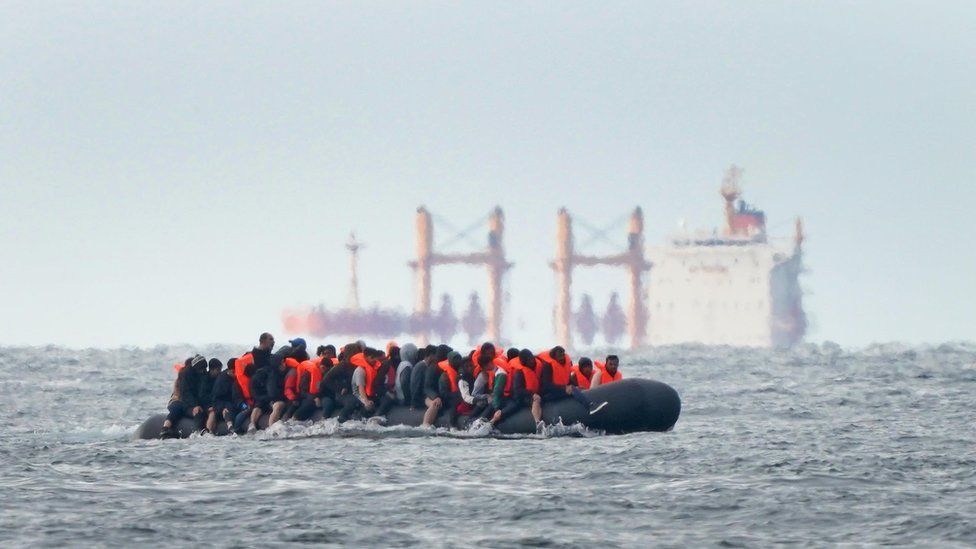ARTICLE AD BOX
 Image source, PA Media
Image source, PA Media
By Dominic Casciani
Home and legal correspondent
Expert lawyers who have been involved in the Rwanda case - or supported the challenge to the policy - have described new legislation as potentially setting up a politically explosive fight with both the Supreme Court and European Court of Human Rights.
In last month's Supreme Court ruling, five justices unanimously ruled that the country was not safe - and they listed the detailed evidence about how its asylum system was deeply flawed.
The key element of the government's package tries to deal with this part of the defeat by asking Parliament to declare Rwanda to be "conclusively" safe and simultaneously banning British judges from ever saying it is not.
That is aimed at preventing the courts from once again considering documented evidence about injustices in Rwanda's asylum system. Taken to a hypothetical extreme, if Rwanda exploded with civil war like in 1994 (not something currently likely to happen), British law would still state the country was a safe place to send people.
The plan then orders British judges and courts to ignore the sections of the Human Rights Act that set out how they should interpret safeguards set out in the European Convention of Human Rights. That includes the right not to be tortured, or the right to a fair hearing before a court.
It also prevents judges from considering other international laws - most importantly the Refugee Convention and the United Nations' ban on torture.
Finally, it says our courts must ignore any other British law that stands in the way of finding the country to be safe - this is important because the Supreme Court said such laws exist.
Yet, at the same time it says that some individual migrants may still be able to challenge the plan on the basis that Rwanda is not specifically safe for them because of their individual circumstances.
What does this amount to?
The front page of the bill gives it away. Every piece of new legislation must carry a statement as to whether the plan is compatible with the European Convention on Human Rights.
This bill comes without that assurance - and that means government lawyers have warned ministers it is more likely than not to fall apart under sustained legal challenges.
So if the bill is passed, many experts are gearing up for a new and profoundly messy court battle - if not lots of them.
At worst, it could lead to an unprecedented constitutional stand-off between Parliament and judges.
The Supreme Court cannot strike down primary legislation - but it has the power to make a "Declaration of Incompatibility". This is a rare judgment that says an Act of Parliament should be rethought because it is incompatible with the basic European Convention of Human Rights safeguards embedded in British law.
Two such rights that come to mind in relation to the Rwanda plan are the right not to be subject to inhuman treatment and the right to have a fair hearing of your case before you are put onto a plane to equatorial Africa.
If the Supreme Court makes a Declaration of Incompatibility, in theory a government should then ask Parliament to amend the offending law. But it does not have to do so - hence the potential stand-off.
So if ministers pressed ahead with flights, it is a racing certainty that claimants would then try to take their case, as would still be their right under the law, to the European Court of Human Rights.
The court in Strasbourg would then have to consider whether it wants to block the plan - and flights - while it considers the case.
If it did that, the bill includes a measure that says ministers can ignore such an order and send a plane skywards anyway.
But two massive obstacles are likely to stop the government from getting that far.
The first is politics. They need to get this plan through Parliament - and there is no certainty the House of Lords will comply.
Secondly, just supposing it did become law, some of the best legal minds in the country have fought the government over Rwanda. The plan could become so mired in challenges in court that it never gets to a final judgment before the General Election clock runs out.

 1 year ago
45
1 year ago
45








 English (US) ·
English (US) ·